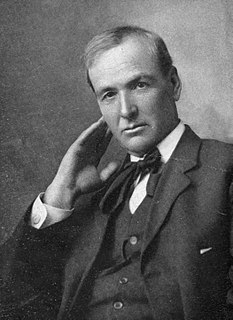A Quote by Arthur Compton
It is primarily through the growth of science and technology that man has acquired those attributes which distinguish him from the animals, which have indeed made it possible for him to become human.
Related Quotes
Existential psychotherapy is the movement which, although standing on one side on the scientific analysis owed chiefly to the genius of Freud , also brings back into the picture the understanding of man on the deeper and broader level man as the being who is human. It is based on the assumption that it is possible to have a science of man which does not fragmentize man and destroy his humanity at the same moment as it studies him. It unites science and ontology .
According to the technical language of old writers, a thing and its qualities are described as subject and attributes; and thus a man's faculties and acts are attributes of which he is the subject. The mind is the subject in which ideas inhere. Moreover, the man's faculties and acts are employed upon external objects; and from objects all his sensations arise. Hence the part of a man's knowledge which belongs to his own mind, is subjective: that which flows in upon him from the world external to him, is objective.
There is no man ... however wise, who has not at some period of his youth said things, or lived a life, the memory of which is so unpleasant to him that he would gladly expunge it. And yet he ought not entirely to regret it, because he cannot be certain that he has indeed become a wise man -- so far as it is possible for any of us to be wise -- unless he has passed through all the fatuous or unwholesome incarnations by which that ultimate stage must be preceded.
But nature - that is, biological evolution - has not fitted man to any specific environment. On the contrary, ... he has a rather crude survival kit; and yet -this is the paradox of the human condition - one that fits him to all environments. Among the multitude of animals which scamper, fly, burrow and swim around us, man is the only one who is not locked into his environment. His imagination, his reason, his emotional subtlety and toughness, make it possible for him not to accept the environment but to change it.
Already nature is serving all those uses which science slowly derives on a much higher and grander scale to him that will be served by her. When the sunshine falls on the path of the poet, he enjoys all those pure benefits and pleasures which the arts slowly and partially realize from age to age. The winds which fan his cheek waft him the sum of that profit and happiness which their lagging inventions supply.
Let us take a patriot, where we can meet him; and, that we may not flatter ourselves by false appearances, distinguish those marks which are certain, from those which may deceive; for a man may have the external appearance of a patriot, without the constituent qualities; as false coins have often lustre, though they want weight.
Christianity exhorted man to set himself up against Nature, but did so in the name of his spiritual and disinterested attributes. Pragmatism exhorts him to do so in the name of his practical attributes. Formerly man was divine because he had been able to acquire the concept of justice, the idea of law, the sense of God; today he is divine because he has been able to create equipment which makes him the master of matter.





































